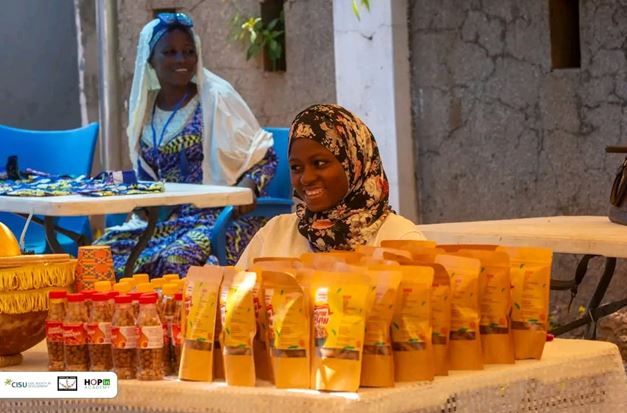By Samuel SAM
To complement the struggle with climate change issues, HOPin Academy – a leading hub for entrepreneurial excellence – is set to launch the Climate-Smart Social Entrepreneurship Programme to transform agri-food systems toward green and climate-resilient practices among Micro, Small and Medium Enterprises (MSMEs) in Northern Ghana.
The two-year project is in collaboration with Bidrag Til Ghana (BTG), a private organisation in Denmark that supports the academy with funding from the Civil Society in Development (CISU) in Denmark, and aims to harness the potential of youths into entrepreneurship programmes.
Building on the Northern Social Enterprise for Development (NSEfD) project’s success, it will focus on advocating for better climate practices and equip MSMEs with the needed information to integrate climate-smart activities for enhancing their businesses and market competitiveness.
The project will be executed in ten communities such as Saboba, Lamashegu, Kpalsi, Choggu, Nyankpala, Kumbungu, Zogbeli, Savelugu, Gbanyemle and Tishegu in the Northern Region.
Startup officer at HOPin Mad. Muniratu Abduallai noted that the contribution of the youth in entrepreneurship is enormous for national growth, and providing them with the necessary information, resources, and skills to integrate climate-smart activities into their operations is the organisation’s priority.
“This will not only help mitigate the negative consequences of climate change but also enable MSMEs to take cognisance of current issues to produce per the season, as well as make use of available resources to create job opportunities,” she said.
According to her, the programme will be targetting three major challenges – climate change, sustainability of MSMEs and the network.
To tackle climate change, the project will help encourage farmers and MSMEs to adopt ecologically sustainable methods in their operations in order not to cause any effect on the environment, she said.
This will help mitigate negative consequences of climate change affecting socio-economic activities in the respective community which result in retarded growth, she added.
Integrating climate-smart activities into their operations will help reduce costs and improve resource management as well as diversify income streams, she stressed.
This, she noted, will not only secure their long-term viability but also increase their market competitiveness.
Project Manager Samuel Owusu also said the intervention will incorporate several strategic approaches to achieve its goals in prioritising climate resilience measures that protect MSMEs from the adverse effects of climate change, thereby ensuring their continued success.
The programme represents a significant step toward a sustainable and resilient future for northern Ghana, he said,
Empowering MSMEs and fostering a culture of sustainability, the programme aims to mitigate impacts of climate change, enhance local businesses’ viability and contribute to the region’s overall economic development, he explained.
This intervention will not only help MSMEs adapt to a changing climate, but also position them as leaders in promoting environmental sustainability and economic resilience, he added.
He said the project will be carried out especially in respective communities where climate resilient issues affect the farmers’ livelihoods .
Monitoring and Evaluation Officer Awinpoka Josephine said some monitoring mechanisms will be put in place to ensure the project achieves set goals.










